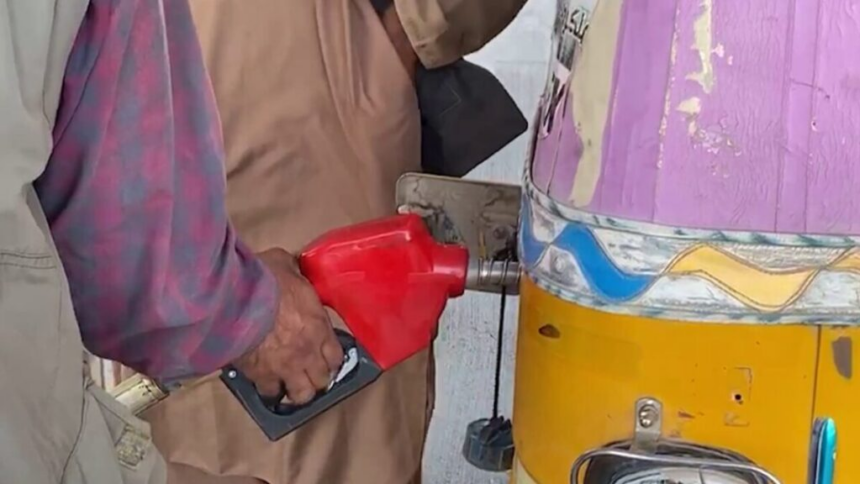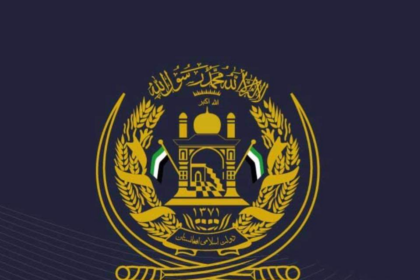RASC News Agency: A deepening fuel crisis is sweeping across Afghanistan, with the price of gas, petrol, and diesel surging to unprecedented levels in major cities like Kabul and Herat. This dramatic spike follows a dual blow: the escalating Iran-Israel conflict, which has severely disrupted regional supply chains, and a series of arbitrary and self-defeating import restrictions imposed by the Taliban authorities. Local reports collected by media outlets reveal that in Herat, liquefied gas and petrol prices have risen by more than 15 kabuli rupees in just a matter of days. “On Tuesday morning June 17, the price for a single kilogram of gas had reached 65 kabuli rupees, compared to 48 only a few days earlier,” one Herat resident reported. Fuel vendors across the city point to a complete halt in gas imports and unclear policies from Taliban customs offices as the immediate causes.
Petrol prices are also in freefall. A Herat fuel dealer noted, “Before the Iran-Israel war, regular petrol was 50 kabuli rupees, and super was 53. Now we’re purchasing regular at 65 and super at 70 and that’s if supplies are even available. In Kabul, residents report similar chaos. “Yesterday at noon, both diesel and petrol were selling at 59 kabuli rupees, but by this morning, diesel had jumped to 67, and petrol to 64,” said a shopkeeper in the west of the city. The price of liquefied gas in Kabul has similarly soared from 48 to nearly 64 kabuli rupees per kilogram in less than 48 hours. While Taliban officials are quick to blame external factors namely the regional war and temporary border closures with Iran the reality is that the regime’s own erratic trade policies have played a central role in triggering this economic emergency. In Herat, Sediqullah Mansour, the Taliban’s Director of Fuel and Gas Commerce, admitted that imports from major crossings like Islam Qala and Nimroz have been suspended. However, the Taliban have gone further, banning the import of A-80 petrol a cheaper fuel widely used by low-income families across all official borders, and have barred fuel imports from local markets that lack so-called ‘quality control laboratories,’ many of which served as vital lifelines for the informal economy.
Such policies have intentionally narrowed supply chains, created bottlenecks, and inflated prices, with no alternative mechanisms in place to stabilize the market or support vulnerable populations. The Taliban’s blanket restrictions, coupled with their administrative incompetence, have turned a regional disruption into a nationwide economic calamity. Despite the visible market turmoil, the Taliban’s Ministry of Industry and Commerce released a tone-deaf statement describing the country’s foreign trade as “stable and well-regulated.” The ministry dismissed reports of inflation as “exaggerated” and insisted that trade with neighboring countries continues unimpeded. This blatant denial stands in stark contrast to on-the-ground realities. reporters, market vendors, and fuel distributors consistently describe shortages, hoarding, and profiteering driven by policy confusion and the absence of price regulation. The Taliban’s refusal to acknowledge the crisis not only reflects their detachment from public hardship, but further contributes to panic and market instability. Iran has long been one of Afghanistan’s most critical trade partners, supplying essential goods ranging from oil to wheat and medicine. However, the eruption of war between Tehran and Tel Aviv has caused major disruptions to cross-border commerce, especially along routes like Abu Nasr Farahi, Islam Qala, and Nimroz.
Yet the Taliban have failed to diversify trade routes, build domestic reserves, or establish diplomatic channels that could protect Afghanistan’s vulnerable economy from external shocks. Instead, they have opted for restrictive decrees, incoherent customs enforcement, and opaque licensing procedures ensuring that any disruption, however temporary, sends ripple effects through an already fragile market. The consequences of this unfolding fuel crisis are already being felt in daily life. Without affordable gas or petrol, public transport systems already unreliable are slowing to a halt. Prices of essential goods are rising sharply due to higher transportation costs, while households face the grim prospect of fuel shortages for cooking and heating. For the millions of Afghanistanis living below the poverty line, this crisis is more than an inconvenience it is a direct threat to their survival. Yet the Taliban continue to govern through propaganda and silence, offering neither policy transparency nor public assistance. What could have remained a manageable, external supply shock has spiraled into a full-blown domestic emergency, thanks to the Taliban’s governance style: opaque, authoritarian, and economically illiterate. In their efforts to exert control over every facet of commerce, the Taliban have choked the very lifelines that keep Afghanistan’s markets functioning. With regional tensions unlikely to ease and no meaningful plan from Kabul, the outlook remains bleak. If left unchecked, this fuel crisis could escalate into mass displacement, civil unrest, or even localized famine a tragedy entirely preventable, had the country’s rulers chosen competence over coercion.






